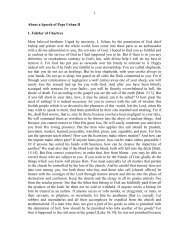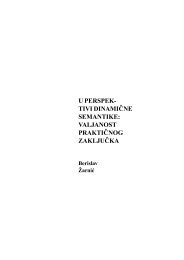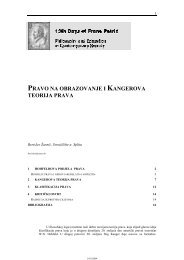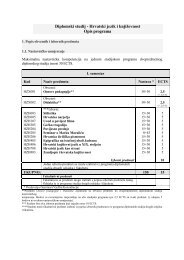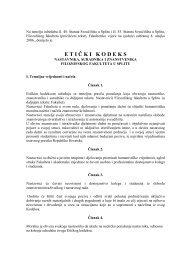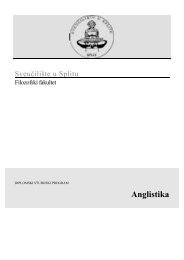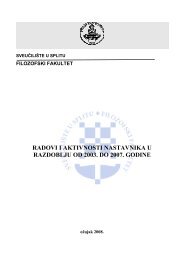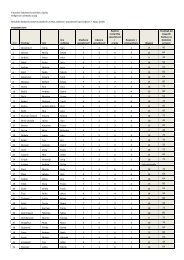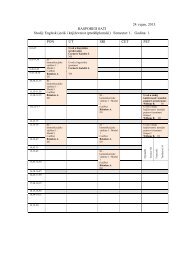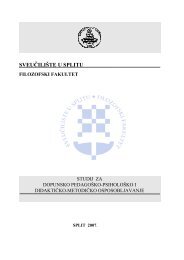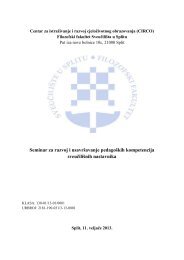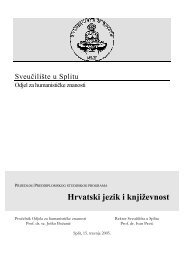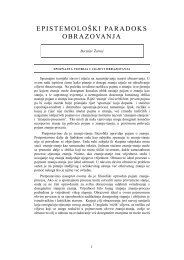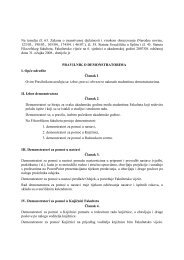English Studies
English Studies
English Studies
You also want an ePaper? Increase the reach of your titles
YUMPU automatically turns print PDFs into web optimized ePapers that Google loves.
G R A D U A T E D E G R E E P R O G R A M M E : E N G L I S H S T U D I E S<br />
Assessment<br />
methods<br />
Language of<br />
instruction<br />
Quality<br />
assurance<br />
methods<br />
Course title<br />
Course code<br />
Type of course<br />
Level of course<br />
The assessment of student knowledge/performance will be based on the<br />
following:<br />
1. Continuous assessment (diagnostic tests, independent homework/project<br />
tasks, achievement tests).<br />
2. Exam: written.<br />
<strong>English</strong>.<br />
1. Anonymous student feedback via questionnaires and surveys (permanent<br />
online anonymous commenting facility and via paper questionnaires).<br />
2. Lecturers responsible for the same subject area collaborate closely and<br />
monitor each other’s work.<br />
3. Occasional class observations and assessment by departmental<br />
colleagues.<br />
4. Occasional open and public lectures for all students and colleagues also<br />
via live online technology (camera and microphone).<br />
5. Recording of lectures via web/digital cam for later analysis and offline<br />
repetition.<br />
Theory of language change<br />
HZE703<br />
Lecture + Seminar / Advisory hours<br />
Elective course<br />
Advanced level course<br />
Year of study First Semester One<br />
ECTS<br />
(Number of<br />
credits allocated)<br />
3 ECTS<br />
Contact hours (15 lectures + 10 seminars + 5 advisory hours) = 0.75 credits.<br />
Student study time (67.5 hours) = 2.25 credits.<br />
Name of lecturer Prof. Dr Dunja Jutronić<br />
Learning<br />
outcomes and<br />
competences<br />
Prerequisites<br />
Course contents<br />
After the completion of the course, the students will acquire the following<br />
competencies:<br />
1. Intellectual skills including the awareness of the inevitability of language<br />
change;<br />
2. Practical skills in noticing the social forces that motivate linguistic<br />
change;<br />
3. Communicative skills in presenting their actual research in language or<br />
dialect change.<br />
Completion of the third year of the undergraduate study programme.<br />
The main concern of the course is around the question: Why does language<br />
change? Students are introduced to the mechanisms of language and dialect<br />
change on all linguistic levels (phonological, morphological, syntactic and<br />
lexical). The emphasis is on the theoretical insights of synchronic<br />
23



